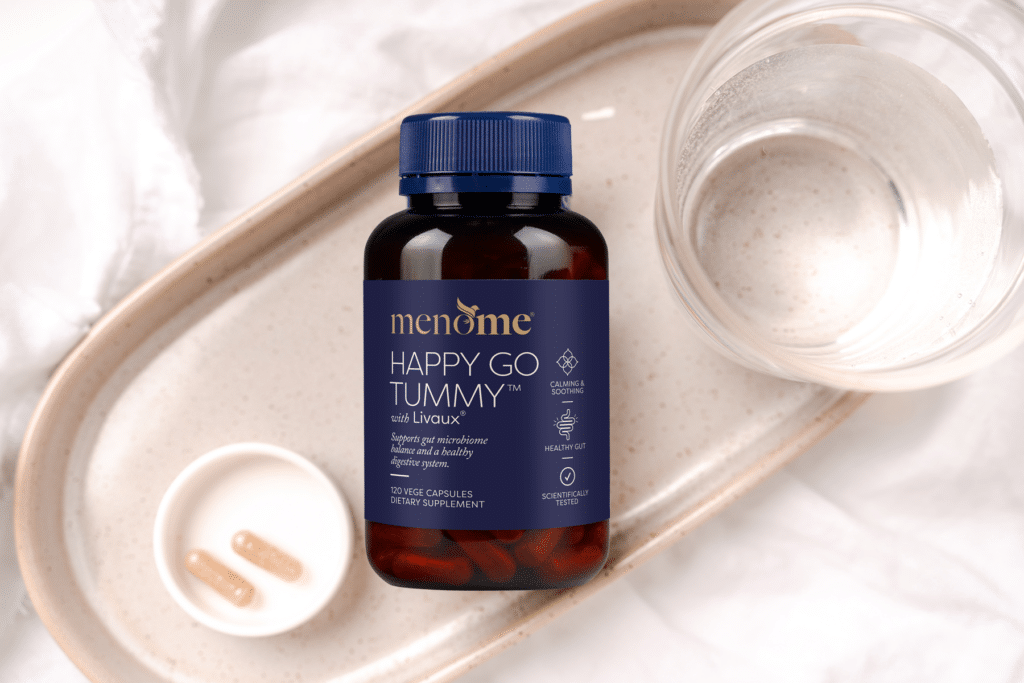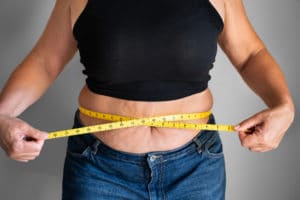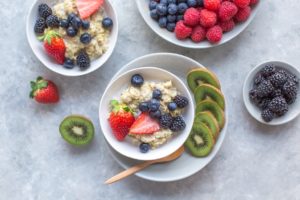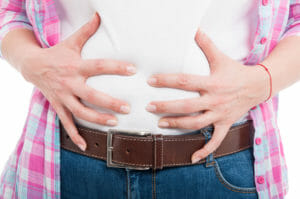If you’ve ever wondered about the difference between prebiotics and probiotics, yu’re not alone! It’s a great question, and we’re here to clear up any confusion.
Gut Health & Menopause: The Inside Story
Your gut health is a big deal – it impacts everything from how well you absorb nutrients to your mood and menopause symptoms. And let’s be real: gut issues during menopause are no joke. Sluggish digestion, bloating, and …ahem unwanted gas? We get it. So, we took a deep dive into the science to help you out.
Did you know?
Your gut is home to trillions of bacteria, outnumbering the cells in your body. These good bacteria (aka probiotics) work hard to keep you healthy, and they may even support (and do in our experience!) a smoother menopause journey.
Simply put:
- Probiotics = the good bacteria or flora that live in your gut
- Probiotics = the food that feeds probiotics
For optimal health – especially during menopause – getting enough of both is key to a balanced gut microbiome
Pro tip: Your gut thrives on fibre, so load up on unprocessed plant foods (5-10 servings daily) to keep things running smoothly.
Prebiotics, Probiotics & Menopause: What’s The Connection?
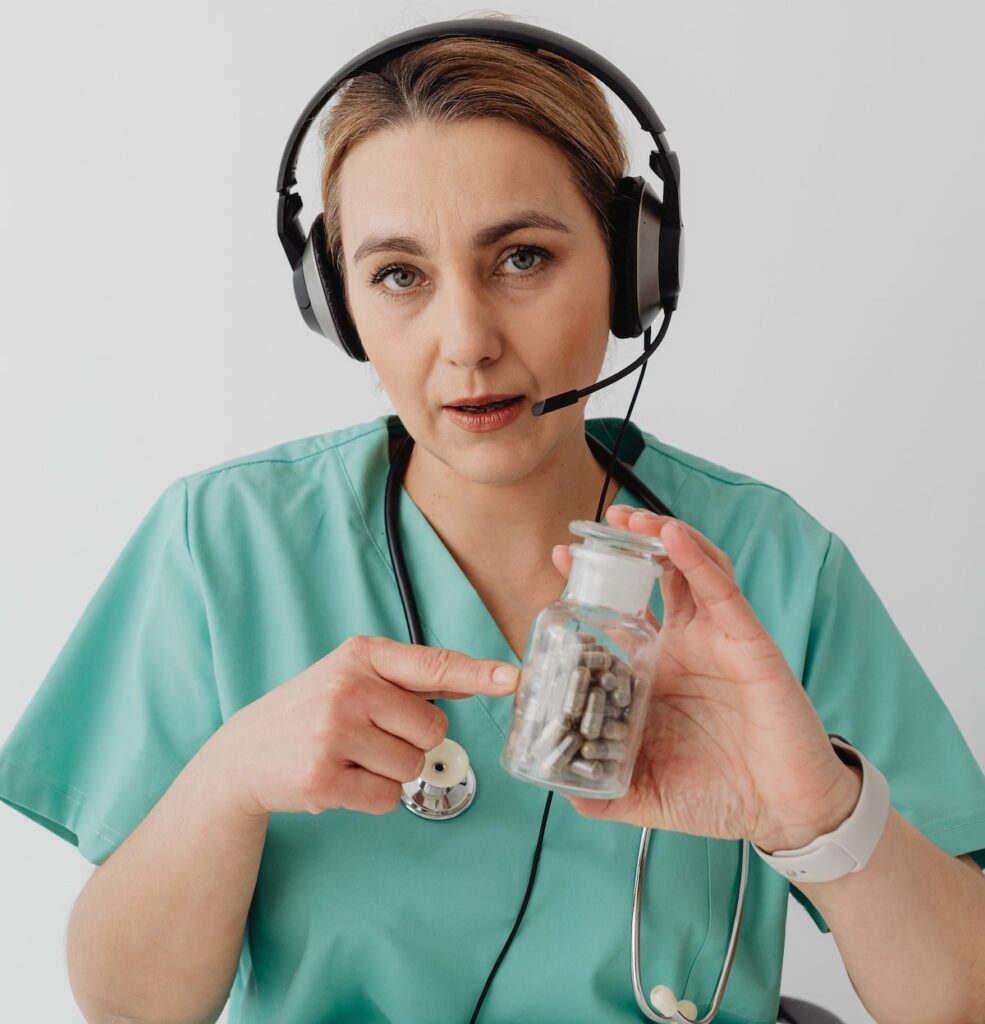
Research suggests that gut bacteria play a crucial role in perimenopause and post-menopause, thanks to something called the gut-brain axis.
A study from Arizona State University (ASU) found that shifting hormones influence gut bacteria, leading to metabolic and cognitive changes(1).
What’s more, the gut microbiome is one of the main regulators of circulating estrogen. A specific group of bacteria, called the estrobolome, helps metabolise estrogen – meaning gut health may directly impact hormonal balance. While science is still uncovering all the details, it’s becoming clear that a thriving gut could make for an easier menopause transition. And that’s why we created…Happy Go Tummy®!
Related: Menopause and Gut Health | Their Robust Pairing Is Vital For Your Midlife Journey
Prebiotics, Probiotics & Happy Go Tummy®
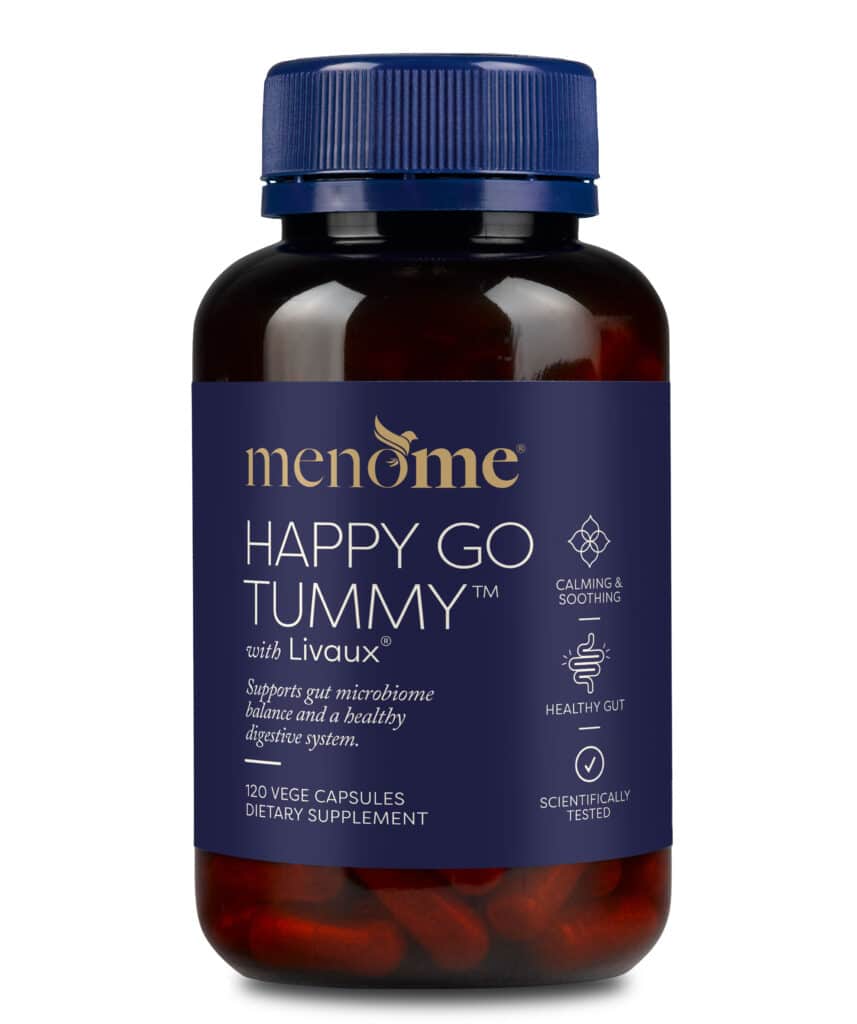
We created Happy Go Tummy® to help combat bloating, sluggish digestion, and gas – common issues as estrogen declines. It’s a synbiotic, meaning it contains both prebiotics and probiotics for a one-two bunch of gut support.
Let us explain the difference.
What’s a probiotic?
Probiotics are live microorganisms or bacteria that keep your gut in balance.
We all have ‘good’ and ‘bad’ bacteria in our bodies and probiotics are good guys.
They’re naturally found in fermented foods such as sauerkraut, yoghurt, tempeh, kefir, miso, natto, fermented cheese and even olives and gherkins.
Probiotics support:
- Digestion & bowel regularity
- Diarrhoea
- irritable bowel syndrome (IBS)
- inflammatory bowel disease (IBD)
- calcium & magnesium absorption
Probiotics MAY help with:
- Gut related immune health
- Eczema
- Vaginal and urinary issues
- Obesity
What’s a prebiotic?
Prebiotics are fibre-rich compounds that nourish probiotics, helping them thrive.
Furthermore, they’re broken down into short-chain fatty acids (SCFAs) which have been linked with multiple wellness benefits including decreased inflammation and better nutrient absorption.
Think of prebiotics as nourishment for probiotics or fertiliser for the soil they grow in. Prebiotics are naturally found in foods such as fruit (especially bananas and kiwifruit), vegetables and whole grains.
Prebiotics support:
- Irritable bowel syndrome (IBS)
- Digestion & Nutrient absorption
- Probiotic growth & gut balance
- Reduction of inflammation
Conclusion: Why Your Gut Needs TLC
A well-balanced gut microbiome isn’t just about digestion – it can also impact mood swings, anxiety, and other menopause symptoms via the gut-brain connection. While research is still evolving, one thing’s clear: supporting your gut is a smart move for overall wellbeing. Especially during perimenopause, menopause and post-menopause.
However, we don’t know the entire story yet although more and more information is being discovered. But while we’re still learning, there’s an overall consensus that eating foods or taking supplements that provide both prebiotics and probiotics make for a happier and healthier time.
That’s why Happy Go Tummy® combines award-winning Livaux®, a natural prebiotic derived entirely from non-GMO New Zealand gold kiwifruit, with a non-GMO probiotic isolated and cultured from New Zealand cheese*, to promote gut health, regularity and immune support.
💙 Ready to feel the difference? Learn more about the wonderful Happy Go Tummy® here.
Mild side effects on first taking pre and probiotics may include gas, bloating, and itchiness but these should be short-lived. The good news is research suggests any discomfort is decreased with the use of Livaux®. If problems persist, please see your medical professional.
Share with a friend
Sign up to our mailing list for the latest news and stories and receive a $5 discount code to redeem on your first purchase, plus receive a 3-step eBook on ways to support your body through menopause.
This site is protected by reCAPTCHA and the Google Privacy Policy and Terms of Service apply.
Related Articles
References:
- Arizona State University: Hormone and gut bacteria link may guide better treatment for menopause symptoms https://news.asu.edu/20220228-discoveries-hormone-and-gut-bacteria-link-may-guide-better-treatment-menopause-symptoms
- Quigley EM. Gut bacteria in health and disease. Gastroenterol Hepatol (N Y). 2013 Sep;9(9):560-9. PMID: 24729765; PMCID: PMC3983973.
- Lumina Intelligence. Uncovering White Spaces: Probiotics to emerge as first port of call for a smooth menopausal transition and beyond

